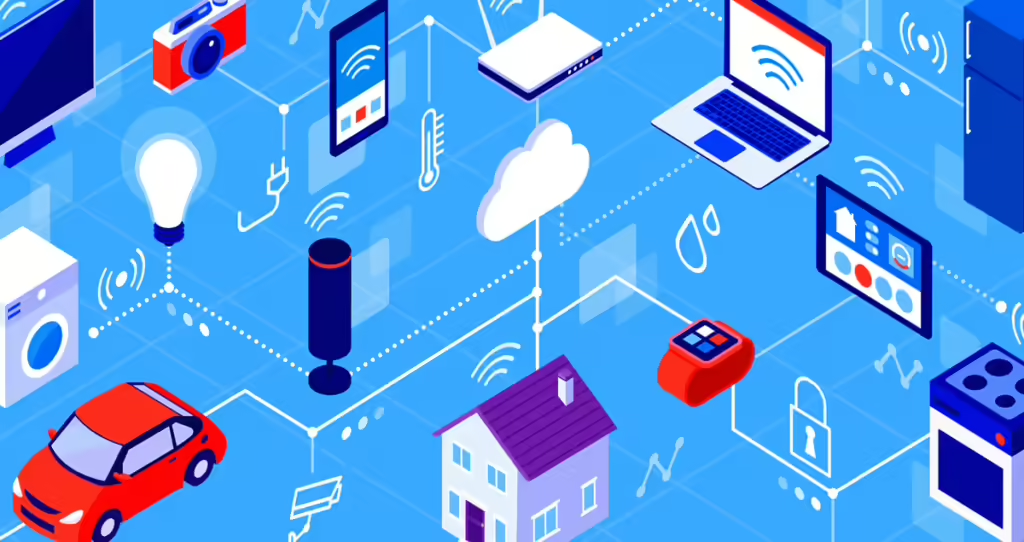Page Contents
- Do Solar Panels Work On Cloudy Days Or At Night
- What are solar panels?
- How do solar panels work?
- How Solar Panels Work Cloudy Days
- Do Solar Panels function at night?
- Will solar panels work in the shade?
- Does the heat or cold affect solar panels?
- Do solar panels also lose efficiency when it rains?
- Does fog affect solar panel efficiency?
- Storing Solar Energy for use on cloudy days as well as at Night
- Recap
- FAQ:
- Related solar news
- Solar Сategories
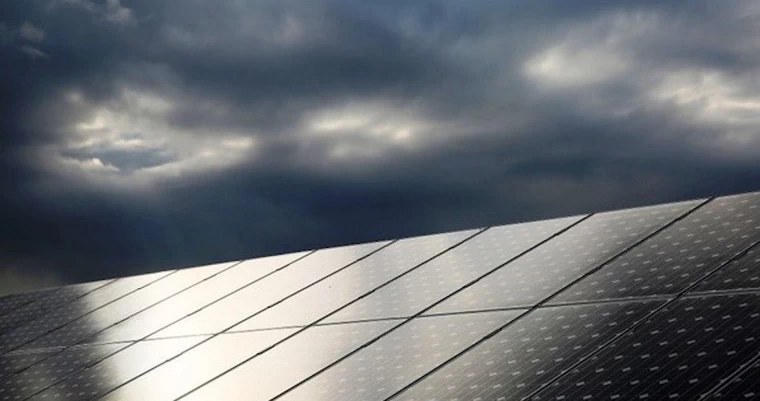
Do Solar Panels Work On Cloudy Days Or At Night
Solar panels permit you to utilize the sun’s clean and renewable energy. This could reduce your electricity bills and also your carbon footprint. But do solar panels work on cloudy days, or during times of less-than-optimal sunlight exposure? For those who reside outside the Sun Belt, this is an important question to be considered before deciding on installing solar panels.
This article will discuss the ways solar panels function on sunny days and whether they work in the evening, and how to ensure that you have power available even when the panels aren’t producing solar energy.
What are solar panels?
Let’s begin at the beginning. Solar panel system consist of several smaller units referred to by the name solar cell. They function by collecting sunlight from our nearby sun, or the star. They convert that sunlight to direct current (DC).
The energy they generated is referred to as photovoltaic (PV) energy. It can be translated to “light-electricity. A single solar panel can produce electricity to power one or two smaller appliances. For a solar array that could power a house or building, you’ll need a system with a lot of solar panels joined together.
How do solar panels work?

This is a more technical and thorough explanation of how these devices function:
The solar panels work and transform energy into power (DC) The power is then sent to the inverter of the system. After that, it’s transformed into AC (AC) electricity. Do you hear a bell from your science class?
If it’s not, we’ll remind you. AC is the energy that the majority of households rely on. This is what you will get when the utility brings electricity to your home, allowing you to stream TV make dinner, or simply switch off the light.
All energy produced by the system you don’t utilize is sent to batteries for storage or to the electric grid power We’ll discuss this in a moment. Solar systems are most effective when the maximum amount of light hits the cells. This generates electricity and the most power. It begs the question, what happens during an overcast day?
How Solar Panels Work Cloudy Days
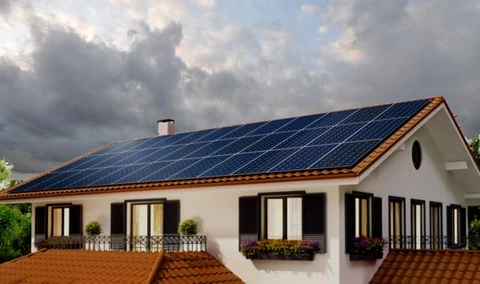
Photovoltaic (PV) solar PV systems make use of indirect sunlight and direct sunlight to produce electrical power. This means that they can perform well even in the absence of cloud cover. In the end, solar panels are most efficient and efficient when they absorb direct sunlight during sunny days.
Although the solar panel system continues to function even when sunlight is partially obscured through clouds power production capacity will decrease. Solar panels produce between 10 and 25% of the usual output when there are dense clouds.
In the case of clouds, it’s usually rain. Here’s an interesting fact that may surprise people: It assists in making your solar panels function more efficiently. This is because rain cleans the dust and dirt that’s accumulated on your panels so that they can better absorb sunlight.
Do Solar Panels function at night?
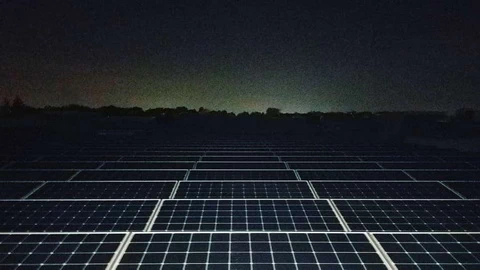
Although solar panels can operate on sunny days they can’t function in the evening. The reason behind this is quite simple solar panels function by a principle in science called the photovoltaic phenomenon, which is activated by solar cells by sunlight, which generates electricity. Without sunlight, the photovoltaic effect isn’t activated and therefore no electricity can be generated.
One method of determining whether your panels are producing energy is by looking at lights in public places. In general the thumb, if street lights, as well as other light sources, have been switched off – regardless of whether it’s cloudy weather or during the evening hours, the solar panels are producing energy. If they’re glowing by the sun, it’s probably too dark for the solar system’s solar cells to be able to operate.
Will solar panels work in the shade?
Even partial shading, whether from the sun or another source, can reduce how much solar output your system generates Solar systems are engineered to stop the negative effects of shading from causing energy production to cease. How much, depends on the individual solar technology–particularly microinverters.
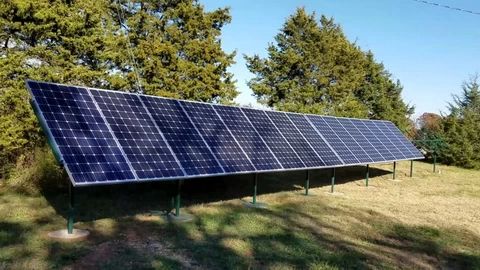
In central inverters, the wires that connect to the inverter are usually connected to the panels, much like lights on the Christmas tree. However, just like the light fixtures on Christmas trees, this setup could go wrong because of a tiny issue.
If you have 24 solar panels on a roof. If shade covers only one of them for a few hours each day, the whole panel will be underperforming for two hours. Even though other panels are producing the most power, the limitations of the shaded panel will block a significant portion of their energy from going via the inverter central.
The best solar systems come with micro inverters in each panel. Each panel is separate therefore if the sun hits one panel for a few hours, only one panel will be affected. In the end, more power is delivered to the home.
If for example 20% or more of solar panels are covered by a tree’s branch, only 20 % of your system’s energy output is reduced for a short time, but nothing more. Installers who are qualified can design your system to ensure shading issues won’t become an issue. It’s the reason it’s essential to partner with a professional solar panel installer who is certified.
Make sure your solar provider employs accredited and/or locally-based solar contractors. Every state has specific rules, guidelines, and incentives. These are in addition to geography and climate factors.
Locally owned businesses that have expertise on the local climate and the installation rules and regulations are the best sources of information about how solar energy system can work on your home.
Does the heat or cold affect solar panels?
Solar panels don’t require hot temperatures to generate electricity. Solar panels work best when they are in sunny areas and cold. If panels reach temperatures of the temperature of 77°F, they are likely to function less efficiently.
However, that doesn’t mean they can’t perform well in hot areas like Phoenix (which is ranked No. six on our list of the cities that have the most solar energy savings). It is true that electricity costs, not weather, play a larger part in the way solar panels can save homeowners money.
Do solar panels also lose efficiency when it rains?
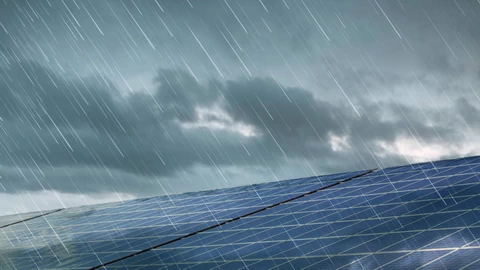
Like normal cloud cover, ultraviolet rays penetrate through rain, too. But, since sunlight is not as abundant as well, the amount of electricity produced. The amount of energy generated depends on the amount of cloud cover, therefore the system’s output will be uneven and will generally decrease during the dark days.
While energy production drops with the increase in cloud cover increase, solar panels are still producing more energy than you’d think. Rain also helps to wash off dirt and dust, keeping your panels in good condition and functioning efficiently depending on the season.
Does fog affect solar panel efficiency?
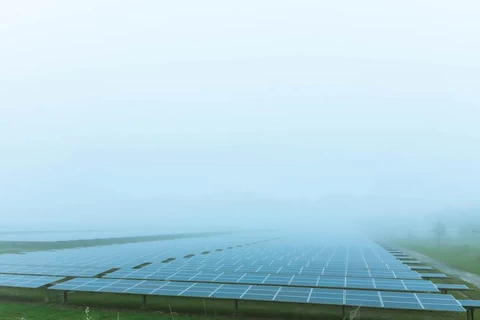
Cloud cover and fog, and other low-light conditions impact solar normal power output, however, solar panels still manage to absorb a portion of the sun’s energy. It’s believed that the majority of solar panels are operating at around 50 percent of their usual effectiveness in foggy conditions, which is vastly better than extremely thick cloud covers or cloud cover.
Furthermore, fog is typically burned off throughout the day (typically early in the day) which means that in mid-afternoon, when the sun is back the solar panel’s efficiency will increase to normal levels.
It's not hurt to remember that Germany, a world leader of renewable power which has an average of more than 200 partly cloudy or cloudy day per year, accounts for around 25% of the solar power generation and saw the highest growth rate in less than the last half-decade. It's a strong indication that solar power is about reducing cost of energy and also helping the environment rather than the sunshine.
Storing Solar Energy for use on cloudy days as well as at Night
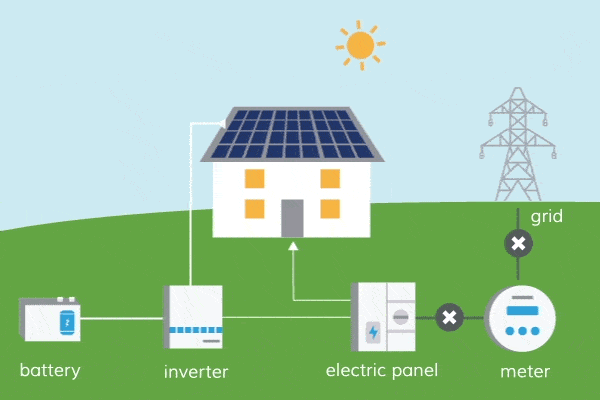
In times of high sunlight, solar panels could produce more energy than you need. This excess power could be used to supply additional energy during the day or in the evening.
How do you save this energy for future usage? There are several possibilities to think about:
The ability to save excess energy in the photovoltaic battery

If you install a solar panel to your solar residential installation, any extra power can be used in times of low sun exposure, which includes the evening hours, and in extremely clouds.
Batteries can let you operate a solar power system for the entire day however there are a few disadvantages to solar battery storage that you should keep in mind:
- This is another item you must install.
- This adds to the overall price of your solar system.
- Batteries take up some space.
- You’ll likely require several batteries if you need power for more than a couple of hours. For instance, Tesla solar installations require two Powerwall batteries when your system is more than 13 Kilowatts.
You can utilize a program for net metering
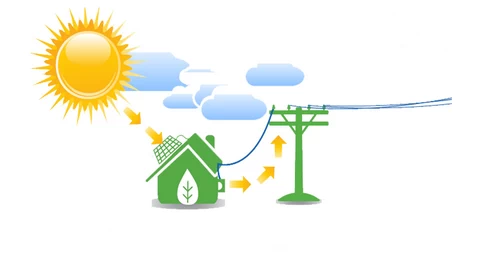
Net Metering software allows you to transfer any excess power that your system generates to the electric grid of your local electric utility which will then be credited by the utility provider. These credits can be used to cover any electrical charges that you pay for on days with overcast skies or at night when you are unable to charge your home using solar energy on its own.
Net metering could be an efficient option for cost and could drastically reduce your electricity costs however, there are some disadvantages to be aware of, including:
- It is possible to not always be able to make a profit.
- In certain situations, there is a chance that you have debt to your utility company.
- Net Metering programs aren’t available in all regions and by all utilities.
Recap
A cloudy day, cloudy area, or rainy weather should not hinder anyone’s thoughts of switching to solar power for energy efficiency and sustainability.
FAQ:

Solar systems perform best during the times when the sun shines. Because the angle and strength of the sun change through the seasons and days as well as the intensity of the sun’s radiation, which impacts the amount of energy the solar system can produce.
Monocrystalline solar panels are the most efficient solar panels to use on cloudy days. They are more efficient than other solar panels. efficiency and are more efficient than other types of panels in conditions with low light like rainy days. The Monocrystalline panel is also among the more expensive kind of panels.
“BTM” is a term used to describe “behind the meters” (BTM) can be utilized in talking about batteries and storage for the energy that supplies power to your building or home without the need for a power grid. By using BTM, a BTM solar energy storage, if your electric provider experiences blackouts, you don’t lose power and will continue to utilize power at home.

